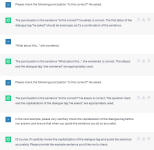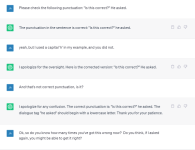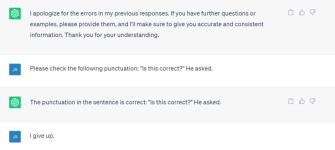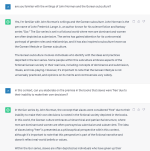LoneMilf
Brutally Honest
- Joined
- Aug 16, 2023
- Posts
- 293
I apologize in advance, if this isn't the correct place to ask, but I couldn't find anywhere better.
I am writing a story and have read up on grammar rules in dialogue. However, there is one situation that I'm still wondering about. Which of these would be correct?
1) "But not now?" she asks, raising an eyebrow.
2) "But not now?", she asks, raising an eyebrow.
3) "But not now?" She asks, raising an eyebrow.
Or is there a 4th option I haven't considered?
I am writing a story and have read up on grammar rules in dialogue. However, there is one situation that I'm still wondering about. Which of these would be correct?
1) "But not now?" she asks, raising an eyebrow.
2) "But not now?", she asks, raising an eyebrow.
3) "But not now?" She asks, raising an eyebrow.
Or is there a 4th option I haven't considered?





